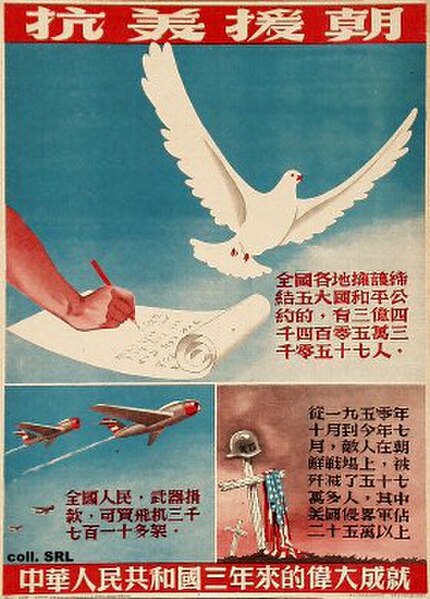The Standard Chinese word xuanchuan "dissemination; propaganda; publicity" originally meant "to announce or convey information" during the 3rd-century Three Kingdoms period, and was chosen to translate Russian propagánda пропаганда in the 20th-century People's Republic of China, adopting the Leninist concept of a "transmission belt" for indoctrination and mass mobilization. Xuanchuan is the keyword for propaganda in China and propaganda in the Republic of China (Taiwan).
1951 propaganda poster from the Campaign to Suppress Counterrevolutionaries.
Propaganda in China is used by the ruling Chinese Communist Party (CCP), and historically by the Kuomintang (KMT), to sway domestic and international opinion in favor of its policies. Domestically, this includes censorship of proscribed views and an active promotion of views that favor the government. Propaganda is considered central to the operation of the CCP and the Chinese government, with propaganda operations in the country being directed by the CCP's Central Propaganda Department.
A large sign featuring a propaganda slogan in 1972: "Long Live the Great, Glorious, and Correct Communist Party of China!"
A Kuomintang propaganda poster celebrating the birthday of Republic of China President Chiang Kai-shek, "Long Live the President"
Chinese enlistment poster to volunteer in the Korean War with the grave of an American soldier
A series of posters from the Cultural Revolution, one of which depicts CCP Chairman Mao Zedong over a mass rally





